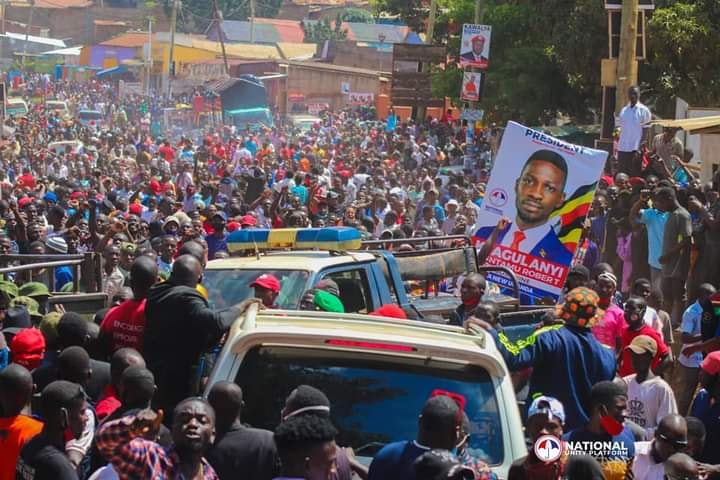Early this morning we received news that all roads leading to NUP offices at Kamwokya were closed down by police without explanation. Presidential hopeful Kyagulanyi will be nominated tommorow 3/nov/2020 at Kyambogo University Grounds. However, the 38 year presidential hopeful has expressed fear that he could be kidnapped at night before nomination,below is what Bobiwine said;
“Many friends have advised me not to spend a night at my house giving me intel that there is a planned raid at my house , I want to make this clear i will spend a night at my house with my family” – Robert Kyagulanyi ,NUP president
In a related story,An election opinion poll has placed Presidential hopeful Robert Kyagulanyi aka Bobi Wine ahead of Uganda’s longest serving president Yoweri Museveni.According to the survey done between October 1st to October 27th by Nico Schoonderwoerd (Ph.D.) of PeerReach Company in Amsterdam, Netherlands by a team of three people with mixed political preference, if the elections were held today, the Kyadondo East MP would trounce President Museveni, 76, with a whooping 61% as the latter would only manage 34%.
Bobi, 38, would receive 61% of the votes with a standard deviation of 5%. The probability of him acquiring more than half of the votes is 97.5% (in scientific terms: the p-value is 0.025, which means it’s scientifically significant), 34% of the votes were for Museveni, also with a standard deviation of 5%. The survey further indicates that Mugisha Muntu would receive almost 3.5% of the votes, but with a considerable margin of error of 2%.
This means President Museveni and his party NRM which came to power in 1986 would leave power after 35 years.“First we constructed 12,000 fully random telephone numbers. Among those 12,000 numbers were some 12,000 people that were found in the Whatsapp database, and we sent them a message asking them for their availability for some questions.
There were 304 responses. We then asked their age, home district and who they would vote for. Respondents happily gave their personal details but were reluctant to share their political preference. Asked if it’s dangerous to share their preference, many confirmed this,” in part reads the survey


